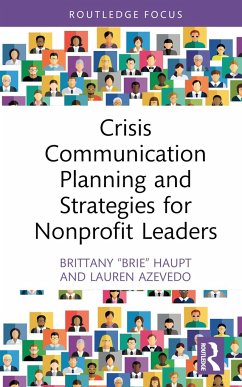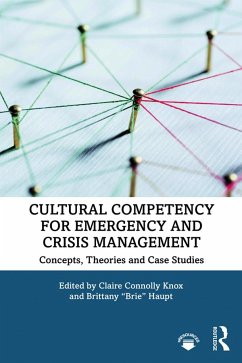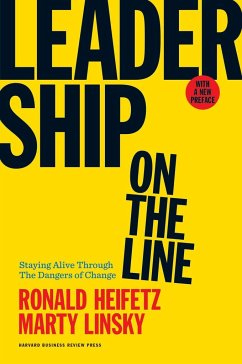
Strategic Corporate Crisis Management
Building an Unconquerable Organization
Versandkostenfrei!
Versandfertig in 6-10 Tagen
36,99 €
inkl. MwSt.
Weitere Ausgaben:

PAYBACK Punkte
18 °P sammeln!
Presenting an alternative to traditional models of centralized crisis management, this book makes the case for decentralizing crisis response and building resilience where it matters most, and provides an accessible, pragmatic approach for doing so.Focusing squarely on crisis management, the book challenges the notion that corporate crisis teams can be expected to swoop in and "save the day": the role of the crisis team should be to advance a culture of readiness across an organization, and to foster leadership and crisis competency where it's needed, when it's needed. Crisis management expert...
Presenting an alternative to traditional models of centralized crisis management, this book makes the case for decentralizing crisis response and building resilience where it matters most, and provides an accessible, pragmatic approach for doing so.
Focusing squarely on crisis management, the book challenges the notion that corporate crisis teams can be expected to swoop in and "save the day": the role of the crisis team should be to advance a culture of readiness across an organization, and to foster leadership and crisis competency where it's needed, when it's needed. Crisis management expert Brendan Monahan draws from current management and leadership thinking that challenges hierarchies, finds incredible potential in the power of an organization's people, and aligns with many of today's highest-performing organizations that have already adopted this approach. This may run counter to current crisis management texts prescribing highly disciplined planning and command structures, but following this book's alternative approach will unlock tremendous potential, deepen resilience, and improve outcomes in crisis response.
Professionals in crisis management, business continuity, emergency management, risk management, and others with crisis management accountability will value this practical book for "corporate crisis first responders" to use when they encounter the extraordinary.
Focusing squarely on crisis management, the book challenges the notion that corporate crisis teams can be expected to swoop in and "save the day": the role of the crisis team should be to advance a culture of readiness across an organization, and to foster leadership and crisis competency where it's needed, when it's needed. Crisis management expert Brendan Monahan draws from current management and leadership thinking that challenges hierarchies, finds incredible potential in the power of an organization's people, and aligns with many of today's highest-performing organizations that have already adopted this approach. This may run counter to current crisis management texts prescribing highly disciplined planning and command structures, but following this book's alternative approach will unlock tremendous potential, deepen resilience, and improve outcomes in crisis response.
Professionals in crisis management, business continuity, emergency management, risk management, and others with crisis management accountability will value this practical book for "corporate crisis first responders" to use when they encounter the extraordinary.














